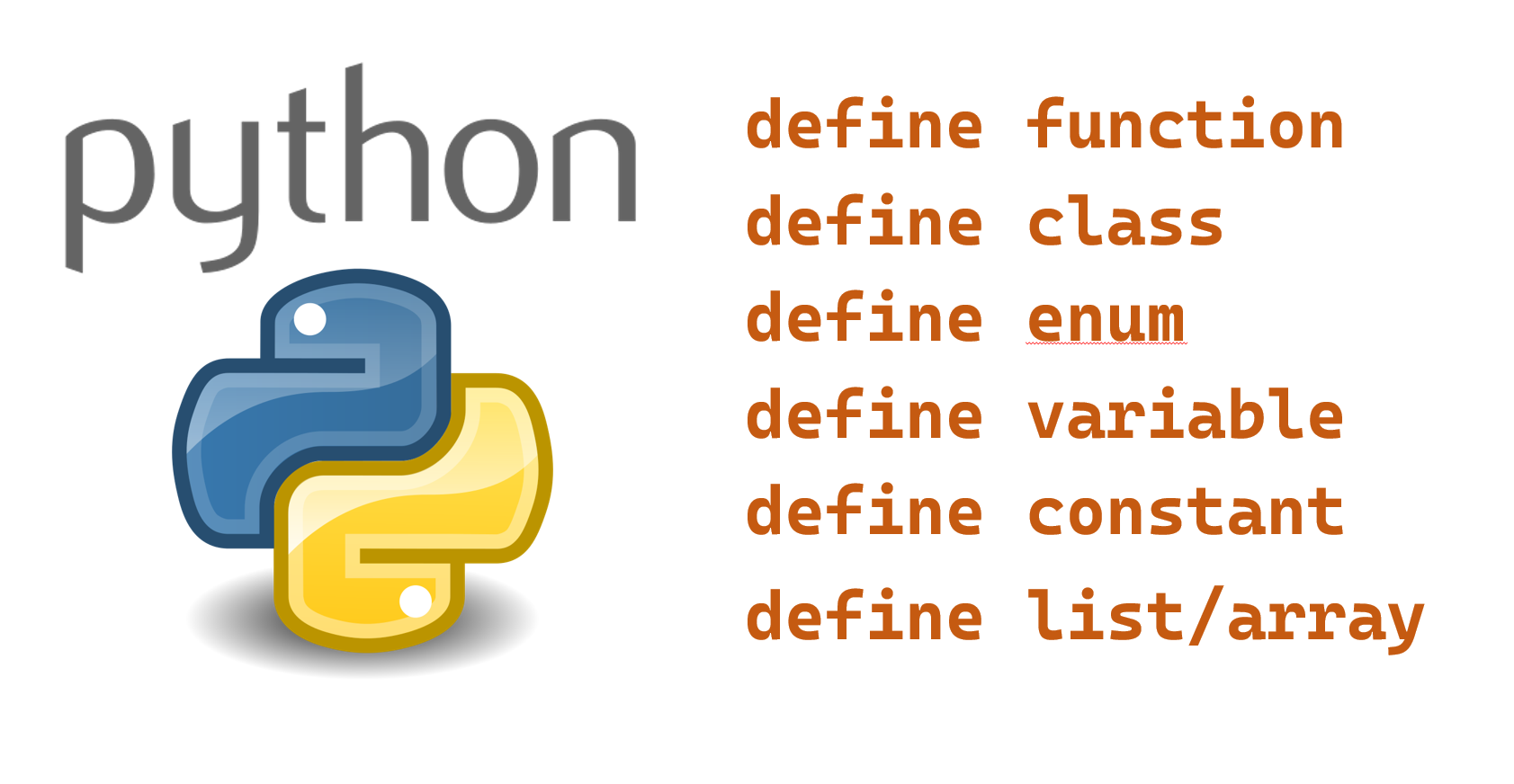Python >> How to Define Function, Class, Enum, Variable, Constant, Array(List)
Table of Contents
This tutorial shows how to define function, class, enum, variable, constant, array(list) in Python.

Python Define Function
Define a function with arguments and return value
def add(a, b):
return a + b
print(add(1, 2))
Define a function without arguments
def print_something():
print("Hello World")
print_something()
Define a function with arguments and a default value
def print_something(name="John", age=30):
print("Hello", name, ", you are", age)
print_something()
Define a function with a variable number of arguments
def print_something(*args):
print(args)
print_something(1, 2, 3, 4, 5)
Define a function with a variable number of keyword arguments
def print_something(**kwargs):
print(kwargs)
print_something(name="John", age=30)
Define a function with a variable number of arguments and keyword arguments
def print_something(*args, **kwargs):
print(args)
print(kwargs)
print_something(1, 2, 3, name="John", age=30)
Define a function with arguments that type are specified and return type is also specified
def add(a: int, b: int) -> int:
return a + b
print(add(1, 2))
Python define class
# Define a class with a constructor and a method.
class Person:
# Constructor
def __init__(self, name, age):
# Attributes
self.name = name
self.age = age
# Method without arguments
def say_hello(self):
print("Hello", self.name)
# Method with arguments
def say_age(self):
print("You are", self.age)
# Create an object of the class.
p = Person("John", 36)
# Call the methods.
p.say_hello()
p.say_age()
Hello John
You are 36
Python define enumeration
# Define a enumeration.
class Color:
RED = 1
GREEN = 2
BLUE = 3
YELLOW = 4
WHITE = 5
BLACK = 6
PURPLE = 7
# Use the enumeration.
print(Color.RED)
print(Color.GREEN)
1
2
Python define variable
Python is a dynamic language. The variable can be assigned any value. The variable type can be refered by the value.
import datetime
# Define a integer.
a = 1
# Define a string
b = "Hello"
# Define a float
c = 1.5
# Define a boolean
d = True
# Define a list
e = [1, 2, 3]
# Define a dictionary
f = {"name": "John", "age": 30}
# Define a tuple
g = (1, 2, 3)
# Define a set
# The values in a set are unique.
h = {1, 2, 3}
# Define datetime
d = datetime.datetime.now()
# Define a namedtuple
from collections import namedtuple
Point = namedtuple("Point", ["x", "y"])
p = Point(1, 2)
print(p) # Result: Point(x=1, y=2)
Python define constant
Python is not a static language.
In a strict sense, you cannot declare a variable or value as constant in Python.
We can define a constant variable by using variable names in uppercase.
But this is just an agreement and acutally the value can be changed.
# Define a constant.
PI = 3.14
Python define array(list)
Python is a dynamic language. The variable can be assigned any value. The variable type can be refered by the value.
# Define a list.
a = [1, 2, 3]
# Define an empty list.
b = []
# Add value to the list
b.append(1)
b.append(2)
print(b) # Result: [1, 2]
# Remove value
b.remove(2)
print(b) # Result: [1]